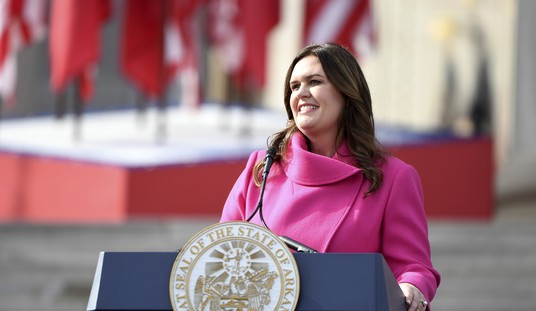A top federal appeals courts has decided in a major campaign finance case. Whether this case goes to the Supreme Court or not, it indicates that in the aftermath of the Supreme Court’s Citizens United case that Americans will continue to enjoy more of their First Amendment rights, as we head into an election cycle where free speech spells big trouble for Team Obama.
On January 21, the U.S. Supreme Court decided Citizens United v. FEC, in which the Court held that citizens joining together in corporate associations are protected by the First Amendment when those corporate groups speak out during election season. The decision restored the understanding of free speech in constitutional law maintained from 1791 until 1990 and overturned two poorly-reasoned cases from 1990 and 2003 that had said the contrary.

But Citizens United was the beginning of restoring our First Amendment rights, not the end. Constitutional scholars and election-law experts are busily debating the next steps to explore after the Supreme Court’s excellent decision in Citizens United. Now a federal appellate court has acted upon that next step.
Of all the federal appeals courts, none is more important than the U.S. Court of Appeals for the D.C. Circuit, leading many commentators to describe it as America’s second-highest court.
On March 26, the D.C. Circuit handed down its decision in SpeechNow.org v. FEC. SpeechNow is an unincorporated association that wants to weigh in on political matters. At issue were several items concerning contribution limits on how much money donors could give to SpeechNow, and whether SpeechNow needed to register as a political committee with the Federal Election Commission (FEC).
Recommended
This was a bold test case when it was filed in November 2007. Fortunately for SpeechNow, these constitutional issues were argued before the D.C. Circuit on January 27, 2010, just six days after the Supreme Court decided Citizens United. As a result, the issues raised in SpeechNow just seemed like the logical next step. You couldn’t ask for better timing.
All but a few cases heard on appeal are considered by a three-judge panel. However, lawsuits like this one, challenging the constitutionality of part of the Federal Election Campaign Act (FECA), are heard by the full appellate court in what’s called an en banc hearing.
So all nine judges currently serving on the D.C. Circuit sat on the case. The circuit court’s decision was unanimous, and the opinion was written by the well-respected head of the D.C. Circuit, Chief Judge David B. Sentelle.
The circuit court held that the FECA provisions limiting how much money an individual can give to an independent political organization were invalid, striking them down for violating the First Amendment. The FEC’s arguments about how financial contributions might lead to preferential access to lawmakers were based on the line of cases rejected in Citizens United. Chief Judge Sentelle concluded, “Whatever the merits of those arguments before Citizens United, they plainly have no merit after Citizens United,” adding that, “Citizens United clearly states as a matter of law that independent expenditures do not pose a danger of corruption or the appearance of corruption.”
But SpeechNow didn’t fare so well when it came to FECA’s requirements to register as a political committee and report its fundraising. The D.C. Circuit noted that during argument SpeechNow’s lawyer conceded that such “reporting is not really going to impose an additional burden.” The court also smacked away the idea that SpeechNow is burdened by having to file a report upon raising $1,000, calling the argument “specious” because SpeechNow already has over $120,000, and plans on raising far more.
The circuit court found that, “the public has an interest in knowing who is speaking about a candidate and who is funding that speech … Further, requiring disclosure of such information deters and helps expose violations of other campaign finance restrictions, such as those barring contributions from foreign corporations or individuals.”
Since all parties to the case lost on a couple issues, either side could ask the Supreme Court for review. Regardless of whether it does, it’s clear that the First Amendment gains that we saw in Citizens United (which began in earlier cases from 2007 and 2008) are continuing, as Americans again become increasingly free to speak out during elections.
Team Obama should be expected to push back at every turn. These days, the more ordinary Americans can speak out to inform and mobilize their fellow citizens, the worse it is for President Obama’s White House.
Ken Klukowski is a fellow and senior legal analyst with the American Civil Rights Union, and coauthor of the forthcoming book The Blueprint: Obama’s Plan to Subvert the Constitution and Build an Imperial Presidency, on sale April 27.

























Join the conversation as a VIP Member